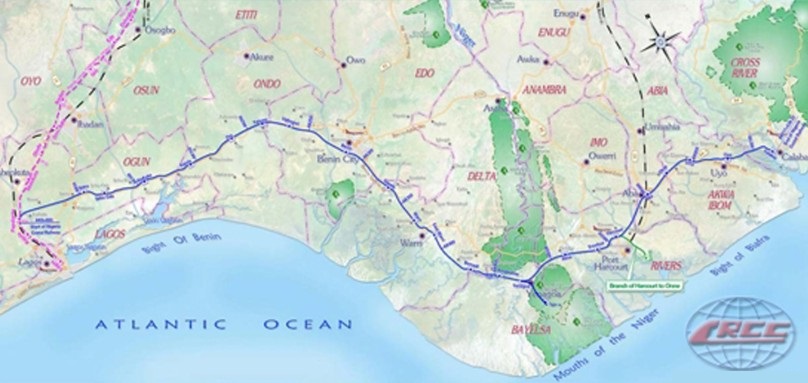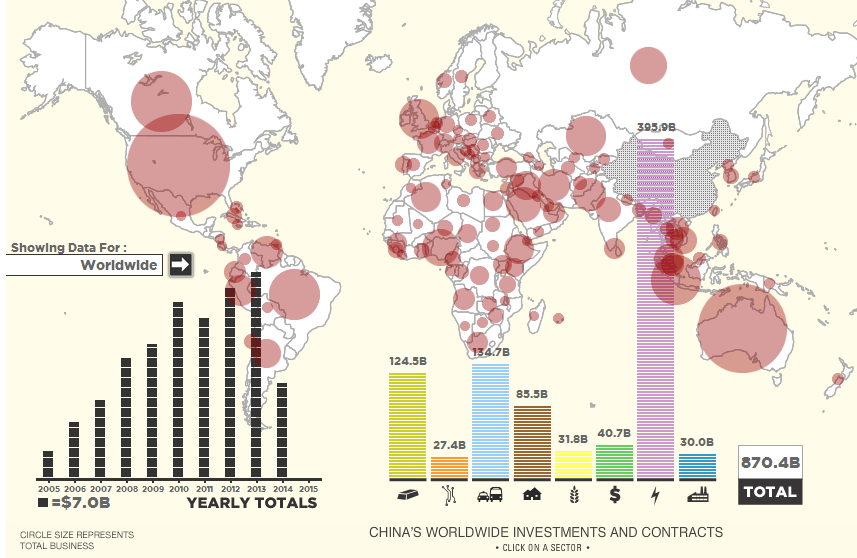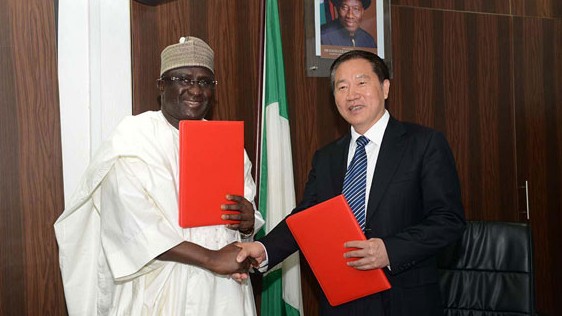A railway stretching over 850 miles (1,400 km) along the Nigerian coast is being taken on by China. Chinese officials announced this week that the $12bn contract was China’s biggest ever overseas contract.
 The project is being undertaken by China Civil Engineering Group Co., Ltd. (CCECC), a subsidiary of China Railway Construction Corporation Limited. The railway will cross 10 Nigerian states, including NIgeria’s oil-producing delta, and will include 22 railway stations. The train will be designed for speeds of 120 km/h.
The project is being undertaken by China Civil Engineering Group Co., Ltd. (CCECC), a subsidiary of China Railway Construction Corporation Limited. The railway will cross 10 Nigerian states, including NIgeria’s oil-producing delta, and will include 22 railway stations. The train will be designed for speeds of 120 km/h.
Officials at CCECC have said that the line could eventually be included in the proposed ECOWAS Railway, that would link the entire economic community of western African states.
Africa has seen uninterrupted growth for almost two decades. China, with a cooling domestic economy, is taking on infrastructure in Africa’s developing regions. In order to help African nations pay for the projects, China is launching new financing plans.
 Transportation projects are among the biggest sectors for Chinese investment, although well below energy projects.
Transportation projects are among the biggest sectors for Chinese investment, although well below energy projects.
Analysts have noted that these transportation projects often connect inland regions to the coast, drawing obvious comparisons to China’s own three-decade growth boom, which began with the development of coastal manufacturing hubs served by ports that transported goods between China and the rest of the world.
The massive reserves accumulated by China during its growth are now being used to bankroll similar development outside its borders.
While economic expansion in the developing world is increasing demand for infrastructure–the value of which has been estimated as high as $78 trillion by 2025–this growth is expected to be funded by public finance groups such as the World Bank and its upstart rival the Asian Development Bank, as well as by private investment.
China announced last month that it would join BRICS countries to form the Asian Infrastructure Investment Bank, which will serve 20 other Asian countries. Chinese officials said that China would pay half of the funding for the bank’s $50 billion start.
 China also announced this month $40 billion in funding for the Silk Road project that will connect major Asian cities and break the “connectivity bottleneck” in the region.
China also announced this month $40 billion in funding for the Silk Road project that will connect major Asian cities and break the “connectivity bottleneck” in the region.
China currently holds more reserves than any other country–$3.8 trillion. China holds eight times as much reserves as the US, and three times as much as Japan, the next largest holder. China’s reserves have been sharply and steadily increasing since the early 2000s.
By Sid Douglas
Photo: China Civil Engineering Group Co., Ltd.
